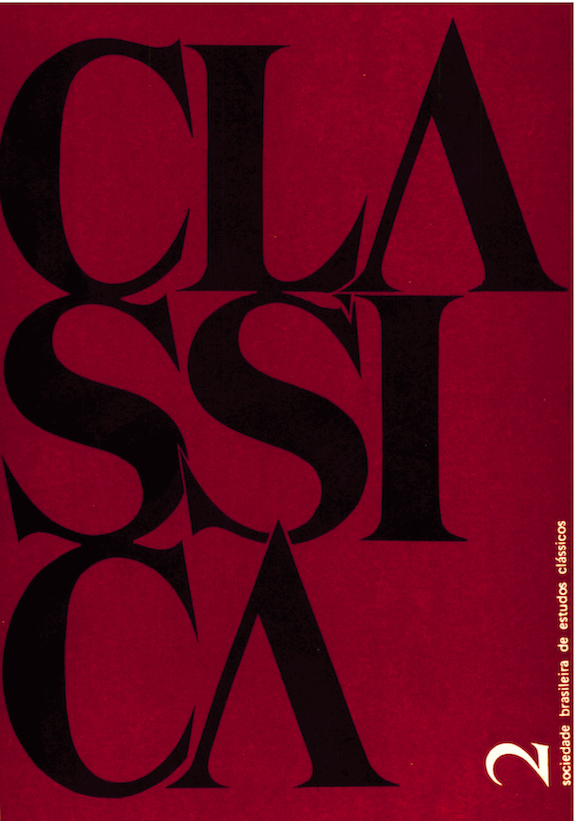O mito de Enéias e a Elegia de Propércio
DOI:
https://doi.org/10.24277/classica.v2i1.627Resumo
This essay intends to stablish the myth of Aeneas as the reason of some dificulty that the elegiacs found to touch their very theme-love, as seen in the work of Sextus Propertius. Considering that his leaving Dido behind signifies the overcoming of Love’s vulnerability in the Roman civilization, it’s shown that once for all the higher designs of Jupiter are preferable and more important even when Love may come from a goddess, from so near a person to Aeneas as his mother Venus. Then it's shown that there’s a necessary link between the elegiac mode and peace as a atheme and as a manner of opposing to the epic war-like subjects. Naive as it may be, Love belongs to the divine sphere in which everything alive is preserved; this divinity, that the Romans received from the Greeks. Is what is most cared to by the elegiacs, in the person and figure of Venus, mother of Julia race.Downloads
Referências
BICKEL, E. Historia de la literatura romana. Madrid: Gredos, 1982.
GENTILI, B. et al. Storia della letteratura latina. Roma-Bari: Laterza, 1987.
LESKY, A. Historia de Ia literatura griega. Madrid: Gredos. 1983.
OTTO, W. F. The homeric gods. New York: Octagon, 1983.
OVIDE. Heroïdes. Paris: Les Belles Lettres, 1928.
PLATÃO. Diálogos. São Paulo: Abril Cultural, 1983.
PREVOST, M. OVIDE Heroïdes. Paris: Les Belles Letres, 1928.
PROPERZIO. Elegia. Milano: Rizzoli, 1987.
VIRGILE. Énéide. Paris: Les Belles Lettres, 1981.
VIRGÍLIO. Eneida. São Paulo: Cultrix, 1985.
Downloads
Publicado
Edição
Seção
Licença
Autores que publicam nesta revista concordam com os seguintes termos:
a. Autores mantém os direitos autorais e concedem à revista o direito de primeira publicação, com o trabalho simultaneamente licenciado sob a Creative Commons Atribuição 4.0 Internacional (CC BY 4.0) que permite o compartilhamento do trabalho com reconhecimento da autoria e publicação inicial nesta revista.
b. Autores têm autorização para assumir contratos adicionais separadamente, para distribuição não-exclusiva da versão do trabalho publicada nesta revista (ex.: publicar em repositório institucional ou como capítulo de livro), com reconhecimento de autoria e publicação inicial nesta revista.
c. Autores têm permissão e são estimulados a publicar e distribuir seu trabalho online após o processo editorial (ex.: em repositórios institucionais ou na sua página pessoal), já que isso pode gerar alterações produtivas, bem como aumentar o impacto e a citação do trabalho publicado (Veja O Efeito do Acesso Livre).
d. Autores autorizam a cessão, após a publicação, de seu conteúdo para reprodução em indexadores de conteúdo, bibliotecas virtuais, bases de dados de acesso público e similares.











